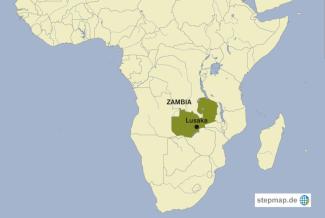Governance
Monitoring elections online

On 11 August, Zambians elected their president, the national assembly, mayors and municipal councils. Facebook was the main forum Zambians used to discuss campaigns, elections and results. Some posts were so assertive that the Electoral Commission of Zambia (ECZ) pointed out that only it had the legal mandate to release official results.
However, some churches conducted what they called “parallel vote tabulation” or PVT for short. Their figures showed early on that incumbent President Edgar Lungu was leading. In the end, this was confirmed by the ECZ. The official result is that Lungu got close to 1,9 million votes, while about 100,000 fewer voters opted for his opponent, Hakainde Hichilema.
Many Zambian citizens feel that the PVT exercise was healthy because it put pressure on the authorities to perform well. Officials knew they were being closely observed, after all. The PVT approach was broadly discussed ahead of the event, and the ECZ accepted this kind of civic activism, but insisted, with good reason, that it was the only institution that could release official results.
Many candidates were keen on using Facebook as a platform to campaign at the parliamentary, mayoral and local government levels. Jimmy Kasabwa of Ndola was an aspiring councillor for Masaiti District Council. “It was easy to campaign using social media platforms in urban areas, because most of the people have access to the internet,” he explains. However, the strategy did not work well in rural areas where people cannot go online. After losing the local election, Kasabwa conceded defeat on Facebook, bypassing rural voters once more.
By the way, not everything went as President Lungu had hoped, even though he was confirmed in office. He had also asked the Zambians to approve a new bill of rights as a constitutional amendment. The bill did not pass because the required quorum of 50 % of eligible voters was not reached.
In terms of e-governance, Zambia is making progress in other ways too. The Zambia Public Procurement Authority (ZPPA) has announced it will soon start using an online portal to manage government tenders. The government has realised that it can reduce the cost of doing business and improve transparency using the internet.
Humphrey Nkonde is a journalist and logistician resident in Ndola, Zambia.
zpeopleandplaces@gmail.com










